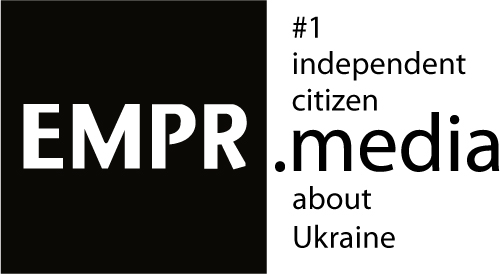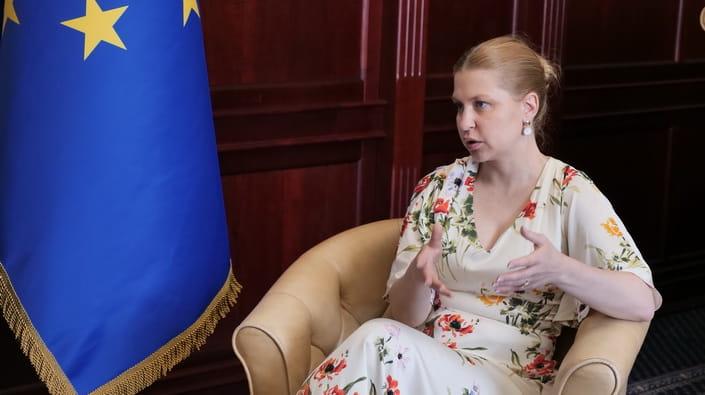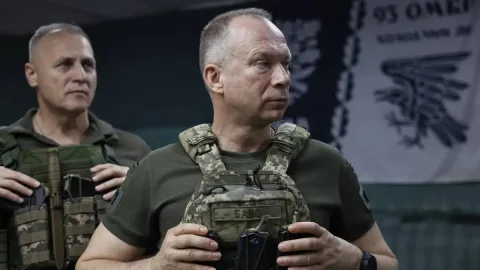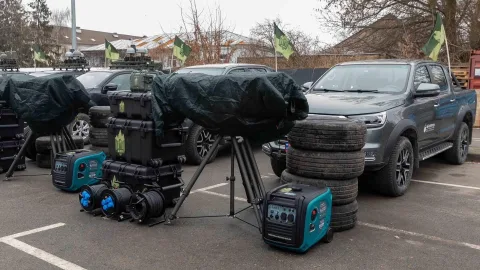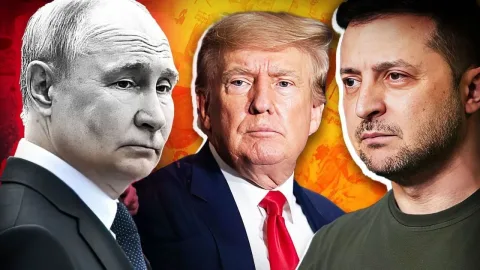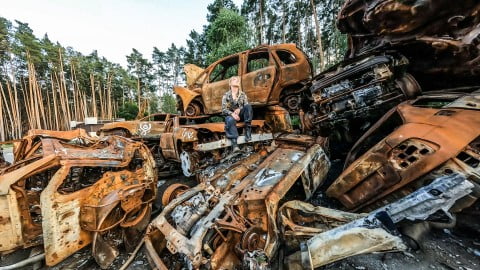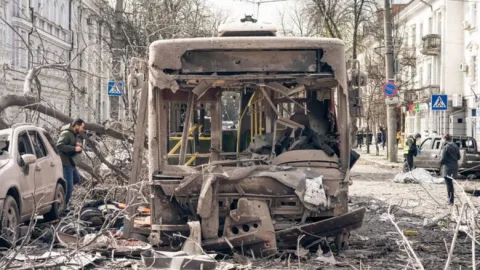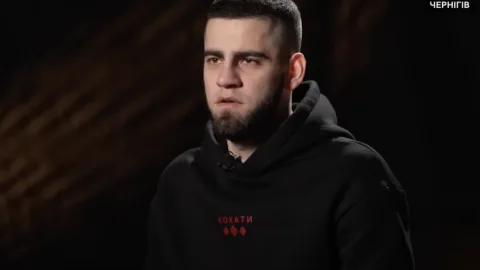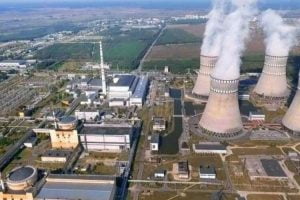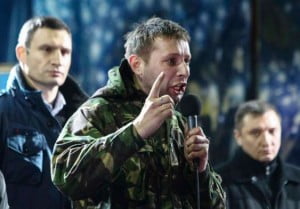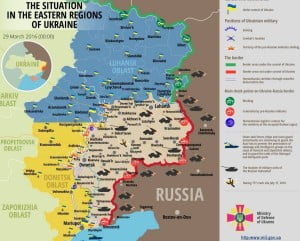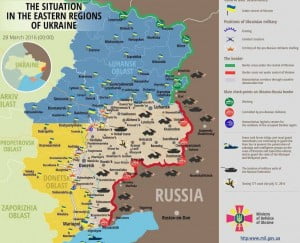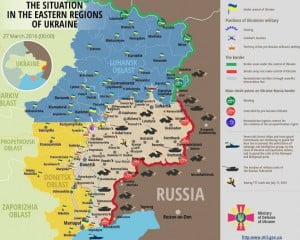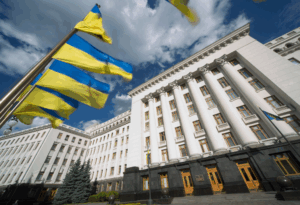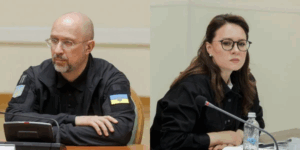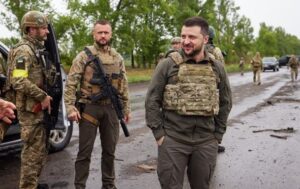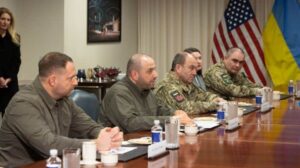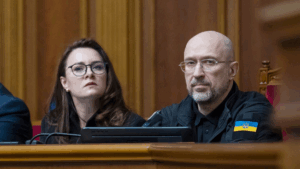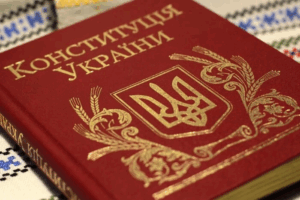One of the surprises during the government reshuffle in July 2025 was the replacement of the Deputy Prime Minister for European and Euro-Atlantic Integration.
Olha Stefanishyna was generally believed to have a good personal relationship with the President, and her performance on the EU track had been unanimously viewed in a positive light.
Some observers attributed her dismissal to recent public scandals, including an investigation involving her ex-husband and his alleged misconduct.
However, the situation became even more puzzling when President Zelenskyy decided to appoint her as the lead official overseeing another strategic direction – relations with the United States.
In this interview with European Pravda – her first conversation in her new role – Stefanishyna talks about Ukraine’s future plans for European integration, what has already been achieved, and, of course, responds to the accusations that have been made against her.
PRESIDENT’S SPECIAL REPRESENTATIVE TO THE UNITED STATES
– First of all, when did you learn you were leaving your post?
– The formal discussions began a few days before the President announced that he had proposed Yuliia Svyrydenko to lead the government. But in reality, the talks started earlier. At that time, the President informed me that he was considering me as a candidate for the position of Ambassador to the United States.
“There were discussions that I should wait before going to the U.S.”
– But wasn’t the original idea that you would become the ambassador to the EU?
– No, no such offer was made to me, and that option was never under consideration.
– Then let’s come back to the EU later. For now – let’s talk about the U.S. The President has appointed you as his special representative to the United States. What kind of position is that? Independent Ukraine has never had such a post before.
– But the status of “Presidential Envoy” itself is not new – there are a few such envoys dealing with different issues.
President Zelenskyy insisted that my physical deployment to the United States should begin as soon as possible. In fact, he wanted me to start working immediately.
There were discussions about whether it might be better to wait – to first open the initial round of negotiations and only then go to the U.S. But his instruction was clear: begin the new work immediately. That’s how the idea emerged that, during the period of receiving the U.S. agrément and completing all formal procedures for ambassadorial appointment, I would work with him in this special status.
– Do we have reason to believe the United States will approve the agrément?
– In my new status, I must be careful with my statements, so I’ll put it this way: all the names that appeared in the media – including mine – have been communicated to the U.S. administration, and no objections (regarding my candidacy – EP) have been expressed. So, the President decided to support my candidacy.
“Andriy Yermak is Ukraine’s point person on the U.S. relation”
– What tasks has President Zelenskyy assigned you regarding the U.S. direction?
– The President expects reinforcement on several fronts. First, the implementation of the so-called “mineral agreement.” Second, establishing a mechanism for purchasing American weapons.
There is already a positive signal from the United States indicating their readiness to sell weapons to Ukraine. In parallel, NATO countries and EU member states have confirmed their willingness to mobilize funds for the purchase of such weapons. Part of my role will be to ensure that this project is launched successfully.
My previous experience will be useful here – especially in building cooperation between EU and NATO countries and the United States on these arms procurement matters. Also, to help explain to the Americans what Europe really is.
Of course, these are not the only tasks. NATO-related issues will undoubtedly come up, as will coordination with the U.S. Congress, and so on…
– But everything you’ve listed sounds like the job of an ambassador. Will Ukraine now have two de facto ambassadors to the U.S.? Oksana Markarova as ambassador, and you as the “presidential envoy”?
– No. As the President explained, I will hold this status only for the period while the procedures related to my appointment as ambassador are being finalized.
To return to the tasks ahead: I also expect to receive additional instructions from the President.
We coordinate closely with Andriy Yermak, because he is the key figure in this area – the person overseeing the U.S. direction.
Right now, my key task is to hold consultations with the Ukrainian parliament, with the new Prime Minister, with heads of state-owned companies, and with the President’s team – so that by the time I go to the United States, I’ll have a clearly formed agenda.
My mission is to amplify, expand, and breathe new life into the U.S.–Ukraine relationship – to make sure Ukraine is heard, seen, and understood.
– You briefly mentioned NATO among the tasks related to the U.S. Recently, Trump’s special envoy Keith Kellogg emphasized in a speech that a key element of a peace settlement must be Ukraine’s sovereignty. And sovereignty includes the right to choose, including in foreign policy. Does this mean that the U.S. is beginning to recognize that Ukraine’s free choice of security integration is an essential part of any future peace?
– I’ll put it this way:
“You have to eat the elephant piece by piece – and it’s best not to start with the tail.“
These issues (regarding NATO membership – EP) are important, and for us, they are self-evident.
But at this stage in our relationship with Washington, the top priorities are the dialogue on arms and securing U.S. involvement in the ceasefire negotiation process.
ON WORKING AS DEPUTY PRIME MINISTER FOR EUROPEAN INTEGRATION
– How long did you serve as Deputy Prime Minister for European Integration?
– Five years and one month.
– I couldn’t even begin to count all the things that have changed.
– Because everything has changed!
In the beginning, we were still talking about the need for our partners to acknowledge Ukraine’s “European identity”…
– …And now we have a decision on the formal start of accession talks between Ukraine and the EU, although the talks themselves haven’t yet begun. Among all these many changes, which one do you consider your greatest personal achievement? What is the political legacy of Deputy Prime Minister Stefanishyna?
– I don’t think I can point to just one thing.
It’s been a huge personal journey. And I consider it a great honor to have contributed to this process during a time of full-scale war. I did everything I knew how to do, everything I could – and it proved effective.
Five years ago, when I became Deputy Prime Minister, I didn’t have much political experience. I had professional expertise and a certain career behind me. And I’m proud that over these five years, I managed to build strong political relationships – both with Parliament and with the President personally.
And although it’s not easy to survive five years in government, I succeeded in establishing cooperation and coordination with all ministers, and building a working relationship with the Prime Minister.
All of this made it possible, in the end, to secure key decisions for Ukraine – to ensure the irreversibility of Ukraine’s NATO membership path, to obtain EU candidate status, to launch the first stages of accession talks, and to secure parliamentary support for the legislative steps needed to move forward.
– One could say that a failure during your term was the fact that accession negotiations haven’t actually begun. European officials continue to say that Ukraine will open all six clusters by the end of the year, and there were hopes the first cluster would be opened these days — but that didn’t happen.
– I wouldn’t agree that this was a failure on my part. We did everything necessary. And besides, until December 31, 2025 arrives, we can’t say this goal hasn’t been achieved. We could open the clusters on any day. The EU could hold a single conference and open all six clusters at once.
That said, I believe the European institutions cannot be forgiven for the fact that, together with the member states, they still haven’t found a way to make this decision.
– European Pravda has information that the EU was preparing to take that step this week, but in the end it didn’t happen. Is that true?
– In fact, what happened this week in connection with the preparation of that decision played a role in the President’s choice to support my candidacy for ambassador to the United States.
We truly did everything we could to make sure that on Friday, July 18, the decision to open negotiations on the first cluster would take place. We were in contact with the cabinets of EU leaders, with the European Commission, with ministers of EU member states.
It wasn’t just me – Andriy Sybiha and Andriy Yermak were also fully involved.
We understood the decision could be made and exerted every effort possible. We did absolutely everything we could. But in the end, it became clear that it wouldn’t happen. Obviously, some key political element was missing inside the European Union.
And I believe that this episode helped the President finally decide that, in a situation where this political element is absent within the EU, my efforts should be redirected toward the U.S. track.
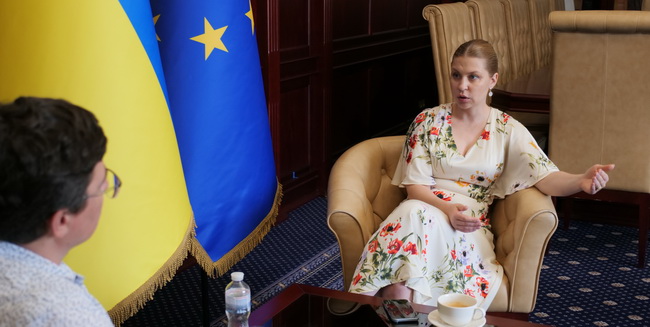
ON CRIMINAL CASES
– There are also criminal cases that have been opened against you or in connection with you. Is this not an obstacle to working in the United States?
– I would like to point out that the Specialized Anti-Corruption Prosecutor’s Office has since clarified its communication.
This is a case related to a specific agency (referring to ARMA – EP). It is not a case against me, it is not a case concerning me. My name appears only because it was mentioned in Mykhailo Tkach’s investigation for Ukrainska Pravda.
I’m fully open to communication on this matter, and I want to emphasize: I have no connection whatsoever to the business or any activity of my former husband.
Even though I had the opportunity, I deliberately chose not to inquire about what’s happening at ARMA or what the NABU investigation is about, or any of the details. Because I don’t want to know about things that have nothing to do with me.
– There’s also the older case involving Olena Lukash, which is still in court. And yet you’re heading to the U.S.
– Yes, the court process is ongoing, and I participate in all hearings in an online format.
My position is very simple and consistent. The case concerns events that took place over 10 years ago. I was 28 at the time and wasn’t thinking about a serious political career.
Everything included in the court materials confirms that I was simply carrying out my official duties, acting according to the law and implementing decisions made by the government.
I was not part of any body responsible for procurement or for distributing funds. My work was strictly bureaucratic — and, in fact, I returned from maternity leave at a time when the whole process had already been organized. I am confident in my legal position.
And most importantly: even while relocating to the United States, I remain in public service. I remain part of the state — I’m not disappearing. So I don’t see any risks here.
Poto credits: European Pravda
Tags: stefanishyna yermak